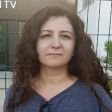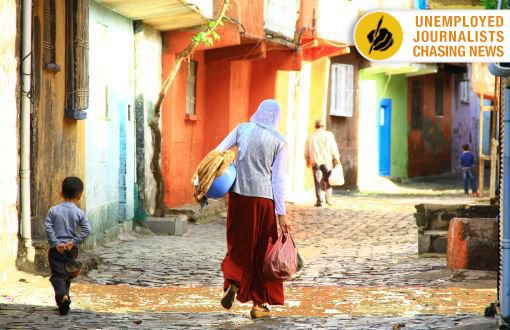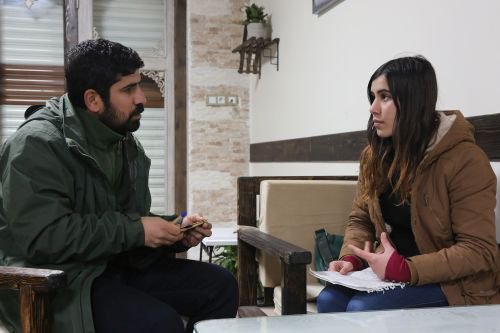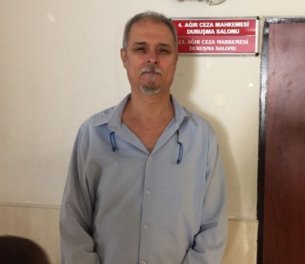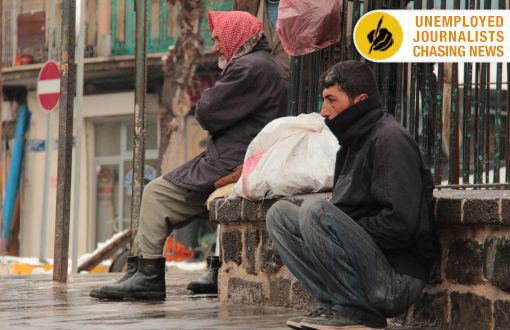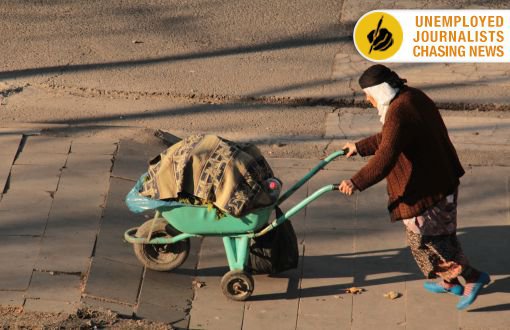Click to read the article in Turkish and Kurdish
Founded 11 years ago in Diyarbakır to conduct research on poverty, Sarmaşık (Ivy) Association changed its direction to solidarity with the poor as a result of the perceived gravity of the situation. It was closed at the end of last year.
The association was among 550 associations, 9 media organizations and 19 health organizations that were shut down with Statutory Decree no 677 on November 22, 2016.
No | Name / Surname | Organization |
1 | Osman Baydemir | Mayor of Diyarbakır Metropolitan Municipality (Present HDP Deputy) |
2 | Mehmet Şerif Camcı | Advisor to Mayor of Metropolitan Municipality (Present Chairman of Sarmaşık Association Board of Directors) |
3 | Kutbettin Arzu | Chairman, Chamber of Commerce and Industry (Former AKP Deputy) |
4 | Raif Türk | Chairman, Diyarbakir Industrialist and Business People Association |
5 | Sezgin Tanrıkulu | Former Chairman, Diyarbakır Bar Association (Present CHP Deputy) |
6 | Ahmet Fikret Öcal | Former Chairman, Independent Industrialists' and Businessmen's Association |
7 | Şah İsmail Bedirhanoğlu | Chairman,Southeast Industrialists' and Businessmen's Association |
8 | Alican Ebedinoğlu | Chairman, Düzce Union of Merchants and Craftsmen |
9 | Abdul Kadir Akboz | Chairman,Southeastern Young Businessmen Society |
10 | Fahrettin Akyıl | Chairman, Commodity Exchange |
11 | İlhan Diken | Doctor – Former Chairman, Medical Association (Deceased) |
12 | Mehmet Selim Ölçer | Doctor – Former Chairman, Medical Association |
13 | Cemal Mercan | Member of Board of Directors, Diyarbakir Industrialist and Business People Association |
14 | Haydar Kılıçoğlu | Educator – Retiree |
15 | Mehmet Işıktaş | Retiree |
16 | Fuat Hayri Demir | Lawyer – Former Chairman, Pir Sultan Abdal Association |
17 | Ali Akıncı | Human Rights Association Former Diyarbakır Branch President |
18 | Celalettin Birtane | Businessman |
19 | Abdulkadir Aydın | Farmer |
20 | Ali Öncü | Spokesperson, Democracy Platform |
21 | Muharrem Erbey | Lawyer - Chairman, Human Rights Association Diyarbakır Branch |
22 | Cavit Ceylan | Social Services Director - Retiree |
23 | Fahrettin Çağdaş | Former Secretary, Union of Chambers of Turkish Engineers and Architects Provincial Coordination Commission |
24 | Necdet İpekyüz | Doctor - Member of Board of Directors, Human Rights Association of Turkey |
25 | Mahmut Ortakkaya | Doctor |
26 | Süleyman Gökalp | Tax Professional |
27 | Mehmet Kızıltepe | Chairman, Southeastern Union of Mukhtars |
28 | Sait Şanlı | Chairman, Chamber of Butchers (Deceased) |
29 | Ali Rıza Yıldırım | Social Service Specialist |
30 | Makbule Altıntaş | Local Agenda 21 |
31 | Naşide Buluttekin | Representative, Umut Işığı Women Cooperative |
32 | Fuat Kumruaslan | Retiree |
Sarmaşık Association was one of the institutions whose closure drew the strongest reaction. Behind this reaction was the fact that 5,400 families, or in other words 32,000 people faced the danger of starvation following the closure of the association. In our report, you will find the 11-year success story of the association and the unjust suffering that arose from its closing down.
32 significant names laid the foundations of the association
Its full name is Sarmaşık Association: Combating Poverty and Sustainable Development.
It was founded in April 2006 in Diyarbakır. Its founders’ committee list was rather “colorful.”
People such as Selahattin Demirtaş, Co-chairman of Democratic Regions Party in that period; Kudbettin Arzu, Chairman, Chamber of Commerce and Industry, later Justice and Development Party (AKP) Diyarbakır Deputy; Osman Baydemir, Mayor of Diyarbakır Metropolitan Municipality, later Peoples Democratic Party (HDP) Urfa Deputy; and Sezgin Tanrıkulu, CHP Istanbul Deputy came together to found Sarmaşık Association.
The founders’ committee list of 32 (Table-1), which was also comprised of representatives from NGOs and citizens, was full of people who were going to be recognized by Turkey in the upcoming years.
Their common trait was that they were from Diyarbakır and they wanted to take part in eliminating poverty in the city.
In its legislation, objectives were listed as follow:
1- To cooperate with national and international organizations that aim at combating poverty.
2- To conduct studies that will implement global objectives regarding combating poverty on a local scale.
3- To ensure the participation of the central government, local authorities and NGOs to this campaign and to raise societal awareness regarding the struggle against poverty.
4- To develop social solidarity and cooperation.
5- To conduct studies that will contribute to eliminating poverty and sustainable development.
6- To provide in-kind and financial aid to disadvantaged groups for food, clothing, health, education, fuel and sheltering.
7- To produce and implement sustainable projects aimed at disadvantaged groups.
“Poverty map” was published
The primary objective was to map the poverty in the city and to contribute to the elimination of poverty. Right after its foundation, the association began its first field research in this area. Five neighborhoods in four central provinces were chosen as research areas.
The neighborhoods were Gürdoğan neighborhood within Yenişehir province, Fatihpaşa neighborhood within Sur province, Huzurevleri and Peyas neighborhoods within Kayapınar province and Körhat neighborhood within Bağlar province.
These were neighborhoods populated by those coming from nearby cities due to conflict. Visible poverty and squatting were their common traits.
The field study conducted by 45 pollsters began in April 2016 in Gürdoğan neighborhood. The research in the five neighborhoods ended in February 2007. Face to face interviews were held with 5,706 family members in the shantytowns of these neighborhoods.
Total number of households | 5,706 |
Total population | 36,215 |
Female population | 17,974 |
Male population | 18,241 |
Average number of persons per household | 6.3 |
Material need is “food”
52 questions were asked within the scope of the survey. Answers were sought to questions regarding subsistence, social security, educational status, health status and sheltering.
Fairly telling results came to light. The most frequent answer to the question “What is your material need” was “food.” (Table 3) This answer alone revealed the conditions.
Number of Households | % | |
Food | 1,743 | 38.3 |
Clothing | 208 | 4.5 |
Rent | 558 | 12.3 |
Health | 240 | 5.3 |
Fuel | 312 | 6.9 |
Education | 292 | 6.4 |
Hot Meal | 123 | 2.7 |
Household Goods | 189 | 4.2 |
Work | 882 | 19.4 |
Total | 4,547 | 100 |
Şerif Camcı, Chairman of the Board of Directors of Sarmaşık Association says that this demand came particularly from women.
“Because families were torn apart due to conflicts and forced migration, women became breadwinners Women wanted food instead of money. They wanted food over money due to the possibility that men could spend it.”
Families with zero income
The reason for the demand for food was that poverty was forcing people to a life way below the starvation line. Minimum wage in the research period, which was between December 2006 and February 2007, was TRY 403.03. Yet the results of the survey (Table 4) show that two-thirds of the interviewed families were living with incomes far below the minimum wage.
Income | Number of Households | % | Cumulative% |
No clear income | 309 | 5.4 | 5.4 |
TRY 1-50 | 64 | 1.1 | 6.5 |
TRY 51-150 | 916 | 16.1 | 22.6 |
TRY 151-250 | 807 | 14.1 | 36.7 |
TRY 251-350 | 1,419 | 24.9 | 61.6 |
TRY 351-500 | 1,258 | 22 | 83.6 |
Above TRY 501 | 933 | 16.4 | 100 |
Total | 5,706 | 100 | 100 |
The grave dimension of the study was that hundreds of families had no income at all. In the first stage, when results of Fatihpaşa and Gürdoğan neighborhoods were published, it was a shock for the public. The reality of families with zero income was a much-discussed topic for a long while.
During those days, Turkish Statistical Institute (TÜİK) revealed the figures of starvation and poverty. The statement showed that 10,000 people were living with income below 1 dollar.
In the same period, Nazmi Belge wrote a piece to Radikal newspaper regarding Sarmaşık Association’s field study. In the piece, titled “Come and See the Poverty in Diyarbakır”, Ankara’s approach to the poor and poverty was criticized as such:
“TÜİK’s distribution of income data and poverty line figures do not mean much to the citizens as they indicate an “average value”. In order to see the difference of those in the bottom and those on the top in the distribution of income, one needs to face “those in the bottom” rather than looking at percentiles.
“When we see them, we think that either TÜİK’s data or our eyes are deceiving us. But the ones who live this reality are the residents of Fatihpaşa and Gürdoğan neighborhoods who live in single room houses, do not have any social security including green card, and bake bread in floor furnace in order to not to pay for bread.”
Danger of starvation gave birth to “Food Bank”
The results of Sarmaşık Association’s field research in five neighborhoods shook the officials of the association as much as they did the public. The fact that there were thousands who would face the risk of starvation without the aid of a single meal changed the plans of the association. The primary goal to conduct field research and reports was abandoned and action was taken to “prevent people from starving to death”. With the words of Camcı, Chairman of the Association, “the employees and officials of the association put the results before themselves and decided to establish a ‘Food Bank’”.
Sarmaşık Association’s journey of solidarity began this way.
Where did this poverty come from?
Diyarbakır is among the cities with the highest unemployment rate for the last ten years. Although the official TÜİK data is “undisputed”; the 7 year data belonging to Diyarbakır and Urfa show the gravity of unemployment, one of the foremost indicators of poverty. (2010: 13.1%, 2011: 8.4%, 2012: 12.4% , 2013: 17.5%, 2014: 17.4%, 2015: 17.5%, 2016: 17.2%) There is a continuous increase in poverty figures. Migration in 90sSociologist Aynur Zengeralp says that one of the most important factors of the poverty in the region is the big migration wave that took place in 1990s due to conflict. She adds: “As a result of the conflict, there was intense migration from villages to the cities. Imagine that thousands of villages were emptied. The migration of hundreds of thousands to cities who were engaged in farming and animal breeding, also damages the economic structure of the country in a significant way. “Hence one problem triggers another one. The city which let in the immigrants is not in a condition to answer their needs. This brings various problems like education, health and employment, and the problem becomes inextricable.” What is left behindZengeralp says that in the beginning of 1980s, the population of Diyarbakır and its provinces was around 700,000, while it neared one and a half million in the beginning of 2000s.
According to the data of Sarmaşık Association, due to the forced migration in 1990s, Diyarbakır’s population increased from 350,000 to 1 million in 20 years. According to the 2006 research of Hacettepe University Institute of Population Studies, 97% of the population that was forced to migrate left behind their vineyards and orchards, 96% left their agricultural vehicles and 83% left their cattle. Hence, people forced to migrate “left behind” their means of living. The solution is hidden in the sourceSociologist Aynur Zengeralp remarks that when the population who migrated to Diyarbakır could not fulfill their needs for living, they were obliged to migrate to further west. “In this manner, migration becomes an ongoing habit for the poor. The only thing that does not change on the way is that those in the power always use this poverty as an opportunıty. This is called the “make them beg” policy. The solution for this massive problem is hidden in its source. What is needed is to end conflict and to abolish its basis. Otherwise, economic packages only satisfy the needs of the middle class. This means that rich would be richer, but nothing would change in the lives of the poor.” From the chamber of commerce and industryAhmet Sayar, Chairman of Diyarbakır Chamber of Commerce and Industry, remarks that “the city has a serious potential for development yet this potential does not make it to the statistics”. He evaluated the last 10 years of Diyarbakır’s economy as such: “When we look at the course in the last 10 years, we can see the relation of the economy to the environment of peace and trust. When the solution process was taking place, new fields of investment became visible. But the reemergence of conflict directly reverberated to investments. The figures of exports decreased. Conflict in both Turkey and Middle East reverberates to the economy of the region. There were losses in revenues and employment. Despite all this, businesses and industrialists still struggle to keep up and pursue their activities.”” |
(NY-SK/HU/HK)
***
UNEMPLOYED JOURNALISTS CHASING NEWS
1- Even Though They Speak Through Their New “Occupations,” They Are Journalists
2- Journalism is Banned under theState of Emergency
3- Germany: New Generation Diaspora/Kopuntu
4- Germany: Immigration of the Suffocated
5- The Organization that Made "The Arab Girl Looks from the Window"
6- How They Work/Cannot Work, Breaking Down the Stereotypes
7- They Marry White People to Avoid Discrimination
8- Private Rehabilitation Centers and Problems: The Example of Bingöl
9- Two Directors Discuss the “Educational Support for People with Disabilities” Practices
10- Students and Parents from Bingöl Tell of Their Experiences
11- 'Solution is Inclusion System in Education for People with Disabilities'
12- The Neighborhood of "Giaour" Doesn't Exist Anymore
13- Mıgırdıç Margosyan Couldn't Recognize His Street Amidst Ruins
14- The Ones Who Choose Life, Love, and to Struggle, Just to Spite Hatred
15- Şahika: You Don’t Become A Trans Woman Later
16- Emirhan: It's Necessary to Have An Organized Struggle and to Record Our Experiences
* The "Unemployed Journalists Chasing News" project is being realized with the financial support of Matra-Human Rights Program of Consulate General of the Kingdom of the Netherlands.




